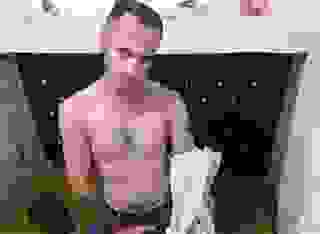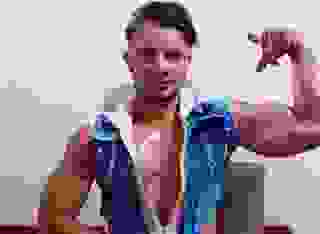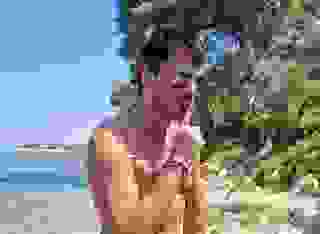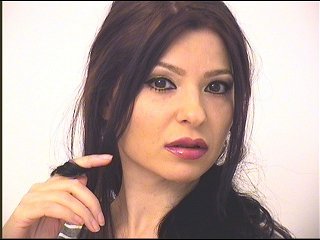- Gay Male
- Journey of Rick Heiden Ch. 03
Note: You can change font size, font face, and turn on dark mode by clicking the "A" icon tab in the Story Info Box.
You can temporarily switch back to a Classic Literotica® experience during our ongoing public Beta testing. Please consider leaving feedback on issues you experience or suggest improvements.
Click hereAll Rights Reserved © 2018, Rick Haydn Horst
This is a work of fiction. Names, characters, businesses, places, events, locales, and incidents are either the products of the author's imagination or used in a fictitious manner. Any resemblance to actual persons, living or dead, or actual events is purely coincidental.
CHAPTER THREE
I won't provide the precise location of the building because I'm not one to cause trouble. Suffice it to say, David had taken me to East London.
When the cab arrived, we climbed in and told the cabbie where we wanted to go. I asked David, "Can we now talk about the situation?"
He shook his head and said, "Not here." He gestured to the divider between the front and back seats of the cab. "Don't let the acrylic fool you; conversations in cabs have no privacy."
"You're kidding."
"I wish."
I had no idea the invasion of privacy had reached that extent. Everyone knew of the ubiquitous CCTV cameras and the selective mobile phone spying, which seemed invasive enough--after all, carrying a mobile was voluntary, and one could switch it off. However, the possibility of listening devices in cabs was crossing a line.
"If you know these things," I said, "what else is happening behind our backs?"
"You name it, they're doing it, and that's scratching the surface. As well as spying on us--at a scope that would make the former Soviet Union's KGB network of watchful eyes seem innocent--the humans on this planet are experiencing, indoctrination, manipulation, intellectual suppression, oppression, repression, enslavement, domination, bodily contamination, narcotization, and infantilization the world over. It's been going on for centuries."
"Infantilization...," I said in disbelief. "Okay, okay, for the sake of argument, let us suggest all that's true. Why would we put up with that? Wouldn't we have revolted by now?"
"We believe," he said, "and at the risk of using a trite Greek metaphor, once Pandora opened the box, nothing could ever undo it."
"I know that story," I said. "When she released all the evils of the world, hope remained. Don't we always have hope?"
"That would depend on how you use it. I contend that there's a difference between living in hope and living on it. A healthy sense of hope is to live in anticipation of something desired, but to live on hope is something else entirely." He thought for a moment. "Let me tell you how my world works, to give you something more than the only thing you've ever known, as a comparison. In my world, for something to serve us, it must serve both the individual and collective humanity at the same time. With that in mind, we have those things and actions that serve us or those things and actions that do not serve us. This principle has allowed us fairness and objectivity. In my world, we live and think in complete freedom with reason, knowledge, integrity, and discipline as our guides. We seek harmony, greater knowledge, and peace. After centuries of effort, we have no sickness, no war, no poverty, and no crime. To live on hope," he said, "is the illusion that, in the future, things will get better without focusing on how to get to where you say you want to go and expending the energy to get there. It's leaving the work for others, or to luck. In my world, we don't live on hope; we act.
"In contrast, and globally speaking, the people here have grown into a myriad of disparate micro-cultures. They don't see themselves as one people. Humans here, with few exceptions, have classified and divided themselves into man-made contrivances like races, ethnicities, nations, and religions. They divide themselves further with knowledge, money, and power, into the dichotomy of the haves and the have-nots. This kind of discord perpetuates itself. It's the source of human misery and never-ending struggle. Is it any wonder that diversion is the greatest human pastime? So, do they have hope here? Sure, they have plenty, but I would suggest that since living on hope is so common here, it's all that the people of this world have."
It stunned me. "Where DO you come from?" I asked him.
He looked at me and shook his head a little. "Not here."
He had given me too vague an answer, but I decided I probably would find out where he came from soon enough. He couldn't or wouldn't tell me. As for his views, I found it too devastating to think of them as accurate, but I identified with some of them. I admit having had a sense of bewilderment for how to fix the problems I saw. I had often lived on hope, and I had sought diversion. No one could tackle such a complicated issue alone. So, small wonder that humanity chose distractions as the preferred method of not dealing with them. People have opposing ideas and beliefs. People pull issues in too many directions. Wouldn't that come as an expression of freedom, or had that resulted from the manipulation he mentioned? Did we have the means to ensure fairness and objectivity? If we thought we did, even a cursory glance revealed evidence that it wasn't working.
The bright, open space of The Tea Room had beautiful tables, fancy tablecloths, and gleaming tableware. Also, it had a few private parlors in high demand, one of which I had reserved for one o'clock. The cab arrived at 1:13. Maggie held our salon for us, and I noted she had changed to a lovely 1930s French style, taupe-colored tea dress.
Of course, we had our customary hug upon arrival. David also complimented her on her appearance and introduced himself--appropriately this time. Our surroundings cultivated a delightful genteelness while ordering and waiting for the staff to bring our tea. However, Maggie and I could get a bit spirited when we discussed things, and I knew we would soon get into it.
Maggie turned her perturbed visage upon me, and the instant the door snapped shut behind the wait staff, she expressed her deep disappointment most indiscreetly. "You can't tell me what happened? Pourquoi (Why)?"
I tried to moderate my tone so she would do likewise. "Because my dear, I signed a rather persuasive non-disclosure agreement. I don't want to go to prison. That's pourquoi."
"Ugh. I might have known," said Maggie, and paused to think about it as she poured the tea. "In your case, as an asylee, if they decided to deport you back to the United States, it would lead to the same thing."
I adored that I could reason with Maggie, and she was right. If they sent me back, the U.S. government would arrest me for crimes against their god. Of course, I never believed in their authoritarian nonsense, but I could not underestimate them, even if it sounded like a joke.
During our light luncheon, Maggie spoke. "So, David," she said, stirring her tea, "what have you to say for yourself?"
David raised his eyebrows over the teacup from which he was sipping, "Me? What have I done?"
"I will not have anyone causing a rift between Rick and myself," she teased. "You already have him keeping secrets from me. Who knows what might be next?"
"Well...I do have something to tell you both," David said, placing his empty sandwich plate and teacup onto the table between us.
I lowered my cup to its saucer. "Oh? Anything for which the British Government has yet to make me privy, or I haven't intuited?" I rolled my eyes.
A smile bloomed on his face, "I must use the loo," he said, rising. "Please, excuse me."
"Cheeky," Maggie said as David left the room.
The instant he disappeared through the door, and it snapped shut, Maggie pelted me with questions. "Can you not tell me? You haven't played a joke on me, have you? Have the two of you had sex without telling me?"
"I must answer those questions with a resounding no. However, as odd as it sounds, David has asked me to go away with him."
"Aller où? (Go where?)" she asked.
"Once again, il ne m'a pas dit (he did not tell me.)"
Maggie sighed. "Il est très beau. Je ne vous reprocherais pas si vous l'aviez fait. (He's very handsome. I would not blame you if you did.)"
Maggie was a dear, but at that point, I couldn't think about leaving. I had too many unanswered questions.
A few minutes later, David returned to his seat. Maggie and I watched him pour a fresh cup. He picked it up, brooded upon the murky substance, studying its contents. He closed his eyes, inhaling the steam wafting upward, and only then did he take a sip.
"We wouldn't poison your cup in your absence," I said.
He smiled. "I never believed you had."
"So, what do your tea leaves say?" I asked him.
He glanced down into the cup. "Most likely, they say nothing. It's just that this may well be the last cup of tea I ever have." He sighed. "I will miss this."
"You keep hinting about where you live," I said. "Have they no tea there?"
"When people grow food," he said, "they do so with sustenance, calories, and nutritional value in mind. We grow tea for its flavor and its caffeinated verve. Like any other plant, varieties of camellia sinensis will grow where they will, and we got ours to grow, but the tea tasted dreadful--something in the soil, no doubt." He drank the last from his cup.
"It's 1:58," said Maggie. "Didn't you reserve this room for an hour?"
"Have we reached two o'clock already? Oh damn, I have yet to grill David."
"I knew you wanted to," he said. "Maggie, why don't you join us at Rick's flat. I have something to discuss with you both."
I swear he went out of his way to infuriate me. A hint here, a delay there, I was growing weary of it. I have always appreciated directness. If he intended to remain in my company, he needed to learn that. We rose to go, and David kindly paid the bill. Maggie and I excused ourselves for a trip to the lavatory. One should do so when the opportunity presents itself.
"Do you think this place has a nice ladies powder room?" she asked.
"I should think so," I said. "If it does, I'll enjoy hearing about it. I'll let you know about mine, but I don't expect much."
They located their lavatories in the back near a nook. As we turned the corner, we happened upon a man in a chair blocking the rear exit and the path to the lavatories. I noted he spoke on his mobile with an American accent. He, at least, seemed considerate enough to leave his table rather than annoy patrons with a phone call.
As washrooms go, the lavatory was dull. More women came to The Tea Room than men, so I suspected they took more trouble for the ladies. The restroom had no lock on the outer door because it contained an individual stall and a urinal. I had finished my business and proceeded to wash my hands, as one should, unaware of the goings-on behind me, the white noise of the tap water masked sounds I might otherwise have noticed. When I looked up into the mirror, a man stood right behind me and held a syringe at my neck. Before I could react, I felt the sting of the needle penetrating my neck, and he covered my head in a black bag. I sensed a strange smell and felt my body go limp as he dragged me out. Mentally incapacitated, I hadn't cared that he picked my jacket pocket or that I had become the subject of the scuffling that occurred, and rather rapidly, I fell unconscious.
He had wasted his time doping me; I wouldn't have put up much fuss had he simply threatened me. What could I do? I couldn't fight; my parents and culture had left me an easy target.
As my consciousness began reasserting itself, I had no idea of my location or how long I remained unconscious. My captors kept the echoey room in darkness, except for me, where the beam's brightness burned my drug dilated eyes. My abductors had bound me with zip ties to a wooden chair. I could only see well enough to notice they had dirtied and crumpled my suit, which displeased me. However, the situation hadn't scared me as it should have. I felt a bit disconnected from what was going on around me. I could have chalked that up to the drug they gave me, maybe because the circumstance seemed unbelievable, or perhaps my shock tolerance had reached its peak level.
Beyond the light searing my retinas, I heard a faint voice that sounded like it said, "Hey, he's awake." My interpreter's ears heard just enough to know the voice belonged to the American who blocked our path to the lavatory at The Tea Room. The vague memory of his face passed through my mind just before he placed the hood over my head.
Feeling more bravado than usual, I underestimated my captors. "You kidnapped me in broad daylight?" I asked in a loud voice. "I know at least one of you are American, last seen wearing an ugly, cheap, dark blue sack suit talking on his cell phone. You look like an IRS agent. Have you come for a greater percentage of my income in lieu of prison?"
"That's funny," said another man with an American accent, "but I wouldn't do that. He gave you too much in the injection. He's shown lots of patience waiting for you to wake up, but I can tell it's worn thin."
I only thought about it for a second and decided to change tactics. I should cooperate. I took a deep breath and altered my tone. "What do you want?"
"That's better," he said. "Among other things, he wants the location of the portal."
"Portal...," I said. "What's that?"
A dark shadow crossed in front of me, and an open palm slapped me so hard on the left cheek it felt like I'd performed a belly flop on my face. The pain was excruciating. If I survived the night, I figured I would have a giant red handprint on my cheek for days.
"He struck you open-fisted," the man said, "he won't go easy on you again. Consider the consequence of your next words. Where is the portal?"
The slap must have kicked started my brain into overdrive because an idea came to me. The guy wouldn't believe I knew nothing about it, so I decided to pretend to know more about it than they did. "It doesn't exist," I said.
"What do you mean?" the man asked.
"It's mole fodder. Don't you get it? The fact that you even know about the portal proves there's a mole, but it doesn't exist. It's a ruse!"
For about two minutes, I heard text messages sent and received.
"That can't be true. Who told you that?" the man asked me.
"Mr. Haywood," I said, unsure whether I remembered the name of the director of MI5 from the meeting that morning. That's when the dark shadow crossed me once again, and I closed my eyes bracing for the impact that I knew was coming.
A strange noise like a short, sharp chirp sounded, and the man preparing to make a fist-sized dent in my face lay at my feet. Another chirp followed, and the man who spoke to me ran for his life.
As I heard a door slam and the squeal of tires, a laugh erupted from the darkness behind me. "A mole! I must say, that is clever. Funnily enough, though, you could be right. They heard about the portal somehow."
I felt relief to hear David's voice, but also a bit euphoric. He came from behind to cut me loose.
"I'm sorry it took so long to find you. I've had several complications."
How did you find me?" I asked.
He reached into the pocket of my waistcoat and unstuck a small, coin-like object. "When I told you this morning, I needed to keep you close; I slipped this into your pocket." He looked at the disk. "It's old technology. However," he held up a kind of pistol, "this little lifesaver, on the other hand," he said, smiling at his joke, "is at least a thousand years more advanced." With that, he tucked the pistol back into the holster inside his jacket.
Nothing he said surprised me anymore. It hadn't mattered that it should sound fantastical or implausible. I knew he wasn't lying. And while I hadn't cultivated a fondness for guns, I admit, it impressed me. He held a beautiful, sleek-looking weapon, in its niobium blue and black.
I gazed down at the man on the floor with a hole burned into his chest. David had stopped him from causing me severe injury or worse. "Is he dead?"
"Yes, he is," he said, donning a pair of vinyl gloves from his pocket. David's confidence and coolheadedness mesmerized me. He sifted through the man's pockets and wallet, "His Virginia driver's license says his name is Theodore Roberts and lived in Alexandria. He has a credit card, a few business cards for a plumber, 180£, a $50 bill, and a slip of paper with a name and phone number on it. I'll take that bit." He put the paper into his pocket and the wallet back into the man's trousers. For the mobile, he used the man's thumb to unlock it and checked his recent calls. "Hmm," he said.
"Anything interesting?"
"Yes, quite interesting." David used his mobile to take a video of the man's recent call history, email, contacts, and a few other places. Once satisfied, he obtained everything pertinent from it; he relocked the phone and returned it to the man's jacket.
"Have you learned anything?" I asked.
He rose while removing the gloves, "He's hired muscle, but I suspect he's a contract killer. I'll tell you about that later. It's most interesting." He rotated the light to where the two men sat. It illuminated a table and chairs. He moved to the table, and I followed, watching him, wanting to miss nothing.
On the table lay an odd piece of paper with the words, "That can't be true. Who told you that?" written on it. Near that, David found- "Ah-ha! Your mobile," he said. "Oh good, they haven't broken it." He inspected the phone and held it out to me. "Here you go. There's no tampering. They just turned it off, so I couldn't track them with its GPS."
Distracted, I took hold of it. "I'm so happy to see you; I could kiss you." We stood there a long moment staring at one another, both of us holding opposite ends of my mobile.
"I won't stop you," he said.
So, I kissed him our first kiss, and not a mere peck either. When it ended, I noted my swollen cheek still hurt and felt hot to the touch. He took me by the hand and pulled me away from the scene.
I should have guessed from the darkness inside the building, but the sun had set hours ago. They had taken me to a warehouse near the Barking Creek Barrier. This one, they had shut for the weekend and contained some storage. I asked him whether we should do anything about the body, and he said we shouldn't bother.
"Let the authorities have him. Once they do some digging, they'll be glad he's dead."
David told me that he had taken Maggie to his home for safety. I called her, and I could hear the relief in her voice.
We walked to where he'd left the Jaguar and drove away. I had never ridden in the front seat of a vehicle in England. The often-insane traffic in London and the idea of driving on the left side terrified me, so I rode in the back of cabs. The unusual experience of sitting in the left seat, sans steering wheel, gave me the uncomfortable sensation of having nothing to do with my arms.
David enjoyed having me to himself to talk more openly. "May I ask you something?" he asked, as we traveled into the darkness between streetlamps.
"Please do," I said.
"Have you given any thought to whether you would be willing to come to my real home? I wouldn't want to push you into anything. I suppose just I want to know that you're thinking about it."
"I've mulled it over," I said, "but I think you've skipped a step. You haven't enlightened me as to where you live. I've heard nothing but hints and euphemisms since we met."
"Oh, of course. Please, accept my apologies. I have grown accustomed to keeping it secret. I find it difficult to speak the words."
"When you said, 'my world' earlier, you meant that in a literal sense. You're not from this world."
"No, I am from this world," he said, "but this world is no longer my home."
"The portal those men wanted exists then."
"Yes."
"Where do you live?"
"We don't know," he said. "It resides in this galaxy; we know that. It's a planet with more mass than the Earth. It revolves around another star and has a night sky as dissimilar in appearance from this one as the Earth is to the Moon."








